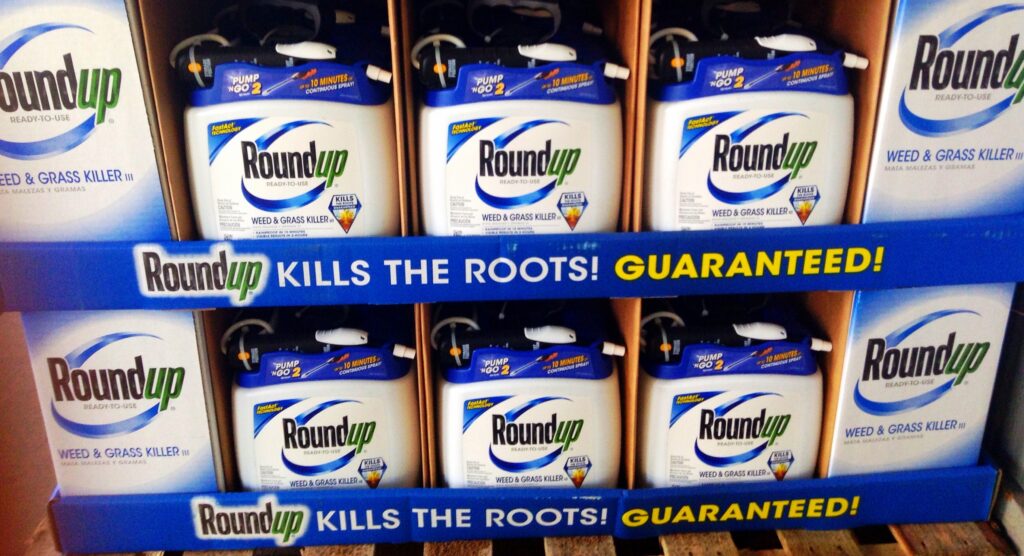John McKivison, 49, filed a lawsuit in Philadelphia against the company after he was diagnosed with non-Hodgkin’s lymphoma, which he said was due to using Roundup on his property for 20 years.
Bayer Ordered to Pay $2.25 Billion after Jury Links Herbicide Roundup to Cancer
JUSTICE, 5 Feb 2024
Frances Vinall | The Washington Post - TRANSCEND Media Service
27 Jan 2024 – A jury handed down a $2.25 billion verdict, including $2 billion in punitive damages, against agrochemical giant Monsanto, according to the lawyers of a man who said he developed cancer from using the company’s weed killer, Roundup.
Yesterday a jury returned a unanimous verdict, finding that Roundup was a cancer-causing product, that Monsanto was negligent and that Monsanto failed to warn about the dangers of Roundup, McKivison’s lawyers Tom Kline and Jason Itkin said in a joint statement.
“The jury’s punitive damages award sends a clear message that this multi-national corporation needs top to bottom change,” they said, calling the verdict “a condemnation of 50 years of misconduct by Monsanto.”
In an emailed statement, Bayer, Monsanto’s parent company, said it planned to appeal the verdict and what it called the “unconstitutionally excessive” damages. It said the jury’s verdict “conflicts with the overwhelming weight of scientific evidence and worldwide regulatory and scientific assessments” on Roundup.
The claims rest on the ingredient glyphosate, introduced as a herbicide by Monsanto in 1974, which inhibits a certain enzyme in most plants, preventing them from growing. Monsanto also introduced genetically modified crops that are resistant to glyphosate.
The U.S. Environmental Protection Agency found in 2020 that “there are no risks of concern to human health when glyphosate is used in accordance with its current label” and that “glyphosate is unlikely to be a human carcinogen.”
The European Commission said last year that “based on an assessment of all available information, there is currently no evidence to classify glyphosate as being carcinogenic.” Health Canada’s Pest Management Regulatory Agency has approved its use.
But the World Health Organization’s International Agency for Research on Cancer found in 2015 that glyphosate is “probably carcinogenic to humans.”
Bayer agreed in 2020 to pay about $10 billion in a settlement to tens of thousands of claimants over the allegation that Roundup causes non-Hodgkin’s lymphoma, without admitting wrongdoing. But fresh claims against it have continued since then. It won a case on Dec. 22 in California, lost a case on Dec. 5 in Pennsylvania, and lost a case on Nov. 17 in Missouri, according to the company.
The German pharmaceutical giant Bayer acquired U.S. agrochemical company Monsanto, the inventor and producer of Roundup, in 2018.
__________________________________________
Tags: Bayer, Cancer, Capitalism, Justice, Pollution, Roundup
DISCLAIMER: The statements, views and opinions expressed in pieces republished here are solely those of the authors and do not necessarily represent those of TMS. In accordance with title 17 U.S.C. section 107, this material is distributed without profit to those who have expressed a prior interest in receiving the included information for research and educational purposes. TMS has no affiliation whatsoever with the originator of this article nor is TMS endorsed or sponsored by the originator. “GO TO ORIGINAL” links are provided as a convenience to our readers and allow for verification of authenticity. However, as originating pages are often updated by their originating host sites, the versions posted may not match the versions our readers view when clicking the “GO TO ORIGINAL” links. This site contains copyrighted material the use of which has not always been specifically authorized by the copyright owner. We are making such material available in our efforts to advance understanding of environmental, political, human rights, economic, democracy, scientific, and social justice issues, etc. We believe this constitutes a ‘fair use’ of any such copyrighted material as provided for in section 107 of the US Copyright Law. In accordance with Title 17 U.S.C. Section 107, the material on this site is distributed without profit to those who have expressed a prior interest in receiving the included information for research and educational purposes. For more information go to: http://www.law.cornell.edu/uscode/17/107.shtml. If you wish to use copyrighted material from this site for purposes of your own that go beyond ‘fair use’, you must obtain permission from the copyright owner.
